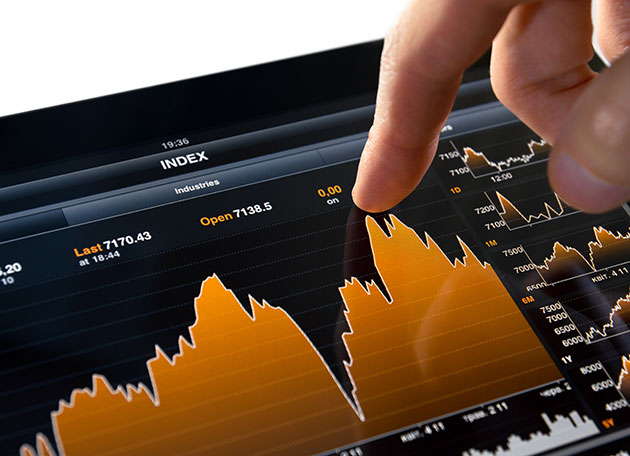For most people, buying shares is about long-term investing and increasing their financial portfolio. While it seems like a great idea to help speed up wealth creation, for someone new to buying and selling shares, it can seem daunting.
What is a share?
When you’re buying a share of a company, essentially, you’re buying a small portion of the ownership of the company. With this comes the potential for huge gains and losses, depending on how the company performs. Like any investment, buying and selling shares is all about balancing risk with reward.
If a company is listed on the Australian Securities Exchange (ASX), (also known as the stock market or stock exchange), this means that anyone can buy and sell shares in that company.
Companies such as Woolworths and Coles are listed on the ASX, however there are more than 2000 other companies listed as well. To buy and sell shares, you usually need to go through a broker.
Why and how do share prices move?
Share prices are dictated by a number of factors including:
- Supply and demand
- The performance of the company – if the future prospect of the company is positive, share prices generally rise. In contrast, if the performance is not promising, share prices will fall.
- The financial prospects of the company – if the company is making a profit or is likely to make one in the near future, share prices will rise as investors buy into the company. On the flip side, if profits are falling, so too will share prices.
- Economic conditions – companies are more likely to do well and deliver stronger profits when the economy is doing well. Consequently, investors are more confident in buying shares during these times. In a poor or unstable economic times, the performance of companies will suffer, and investors will lose confidence. As a result, share prices will fall.
How do you know what shares are good investments?
When considering what shares to purchase, the first tip is to do your research. Talk to a broker about what your short-term and long-term financial goals are. They should then be able to recommend shares to buy.
If you’re using an online trading platform, you’ll have to do your own research. Investigate things such as:
- Fundamentals of the company
- Operation and economic health
- Assets, liabilities, profits and debts
- Any future debts that may pop up
It’s also best to read the financial section of the news and check company’s annual reports.
Well-known companies are generally considered low-risk and tend to be the starting point for new investors. As a rule of thumb, the top fifty companies on the ASX are the least risky investments. They are long-standing businesses that have delivered steady returns.
It’s also easier to trade shares in a company that you understand. If you understand the business and industry, how the company makes money and how it has performed and will perform in the future, it’s much easier to make a decision.
Whichever companies you chose to invest in, it’s a good idea to have a diverse portfolio, which includes companies in different business sectors. This will help reduce the risk in your portfolio. If one industry is not performing well, hopefully the others are.
In general, healthcare and telecoms tend to be stable and predictable investments regardless of the economic condition, because demand in these industries is also stable. The finance and construction sectors are considered cyclic sectors and are more susceptible to economic impacts.
Getting started
As a beginner, it’s important to fully understand how much you want to invest and how this may impact your financial future.
As a general rule, before starting out, you must be comfortable with how much you want to invest, how long you are prepared to be trading for and what level of risk you are comfortable with.
You should ask yourself:
- How much money you’d like to set aside to invest
- How long you want your money in the stock market for
- Whether you’re going to make regular contributions
Make a list of the companies you recognise and understand and then do your research on them to see whether they would be suitable for you and your circumstances. If you have a plan, you’ll be much less likely to make irrational decisions.
There is no definitive number that you need to start investing. It’s important to note however, that if you are going through a broker, some may have a minimum amount that you will commit to buying shares. The lump sum may be larger than first anticipated, and this can often put people off investing. However, if you start early enough, this sum can be saved in no time.
Selling
Trading on the share market is not just about buying the right kind of shares. It’s also about selling at the right time to get the best return.
When you first enter the market, it’s best to have a general understanding of how much you are willing to lose. This means once a company’s share price falls below the amount you’re willing to lose, you sell those shares.
Essentially, this protects you from losing more than you want to. It also means that losses in one company won’t negate gains in another.



